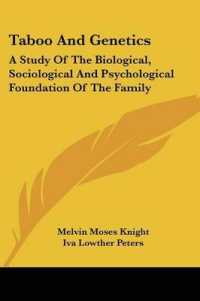基本説明
À travers son oeuvre littéraire, historique et politique, Safvet-beg
Basagic (1870-1934) a formulé les grandes problématiques du nationalisme
bosnomusulman, alors que sa communauté reculait devant les exigences de
modernisation qu'imposait la présence austro-hongroise depuis le Congrès
de Berlin de 1878. Inspiré par les mouvements nationaux ottoman, croate
et serbe du XIXe siècle, il a voulu établir une identité distincte de
celles que fondaient ces mouvements en affirmant la spécificité
religieuse et culturelle de ses coreligionnaires et compatriotes. Ces
engagements étaient étroitement liés à la question agraire en
Bosnie-Herzégovine: Basagic a oeuvré en conservateur, soulignant que la
propriété de la terre était un droit historique du beylicat local,
auquel il appartenait. De son vivant, il n'a pas joui de l'audience
qu'il aurait espérée; mais l'essentiel de ses thèses, malgré leur peu de
sérieux scientifique, a fait florès aujourd'hui.
Through his literary, historical and political oeuvre, Safvet-beg
Basagic (1870-1934) has formulated the great issues of bosnian-muslim
nationalism, at a time when his community retreated from the demands
placed upon it by the process of modernisation imposed by the
austro-hungarian presence since the Berlin Congres of 1878. Inspired by
ottoman, croat and serb nationalist movements of the 19th century, he
attempted to establish an identity that was distinct from those of these
movements by affirming the religious and cultural specificity of his
fellow believers and compatriots.
Full Description
À travers son oeuvre littéraire, historique et politique, Safvet-beg
Basagic (1870-1934) a formulé les grandes problématiques du nationalisme
bosnomusulman, alors que sa communauté reculait devant les exigences de
modernisation qu'imposait la présence austro-hongroise depuis le Congrès
de Berlin de 1878. Inspiré par les mouvements nationaux ottoman, croate
et serbe du XIXe siècle, il a voulu établir une identité distincte de
celles que fondaient ces mouvements en affirmant la spécificité
religieuse et culturelle de ses coreligionnaires et compatriotes. Ces
engagements étaient étroitement liés à la question agraire en
Bosnie-Herzégovine: Basagic a oeuvré en conservateur, soulignant que la
propriété de la terre était un droit historique du beylicat local,
auquel il appartenait. De son vivant, il n'a pas joui de l'audience
qu'il aurait espérée; mais l'essentiel de ses thèses, malgré leur peu de
sérieux scientifique, a fait florès aujourd'hui.
Through his literary, historical and political oeuvre, Safvet-beg
Basagic (1870-1934) has formulated the great issues of bosnian-muslim
nationalism, at a time when his community retreated from the demands
placed upon it by the process of modernisation imposed by the
austro-hungarian presence since the Berlin Congres of 1878. Inspired by
ottoman, croat and serb nationalist movements of the 19th century, he
attempted to establish an identity that was distinct from those of these
movements by affirming the religious and cultural specificity of his
fellow believers and compatriots. These engagements were intimately
connected to the agrarian question in Bosnia-Herzegovina: Basagic acted
as a conservator, stressing that ownership of land was a historical
right of the local beylicat, to which he belonged. During his lifetime
he did not have the audience for which he would have wished; but the
essential elements of his theses, despite their lack of scientific
rigor, have flourished today.








